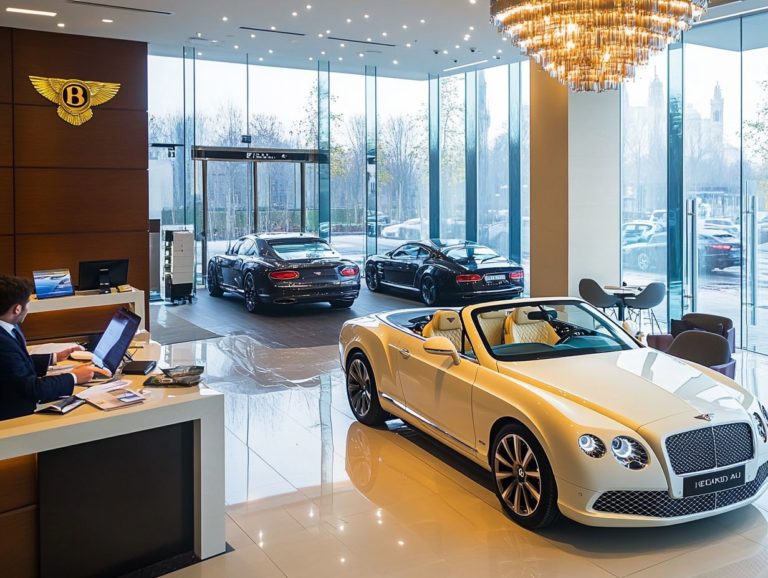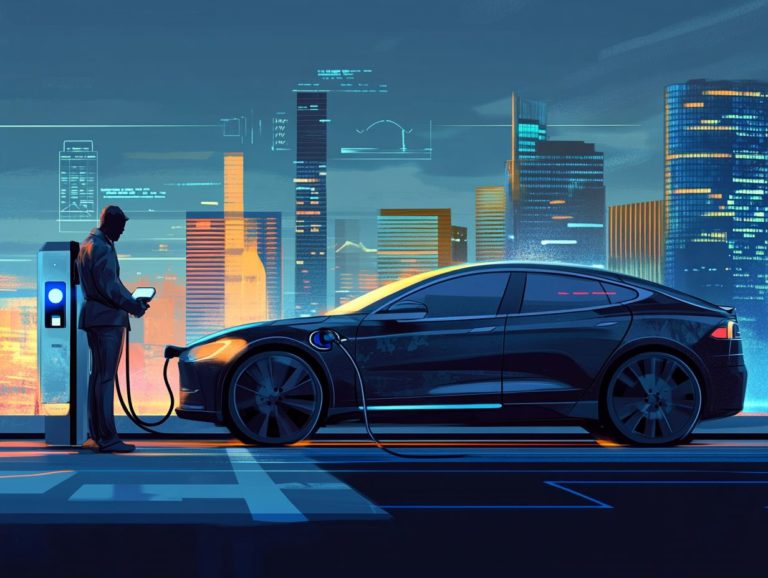Understanding Coverage for Non-Standard Vehicles
When it comes to insuring your vehicle, it s clear that not all rides are created equal. Non-standard vehicles think classic cars, specialty trucks, or modified motorcycles often demand unique coverage options that diverge from traditional vehicle insurance.
Are you a dedicated collector or just a weekend enthusiast? Understanding your insurance options is essential!
This article delves into what non-standard vehicles are and why they require specialized insurance. You ll discover the types of coverage available, the factors that influence your rates, and practical tips to help you find the right protection for your one-of-a-kind ride.
Contents
- Key Takeaways:
- What are Non-Standard Vehicles?
- Why Coverage for Non-Standard Vehicles is Different
- Types of Coverage for Non-Standard Vehicles
- How to Obtain Coverage for Non-Standard Vehicles
- Tips for Finding the Right Coverage
- Frequently Asked Questions
- What are specialty vehicles?
- Do I need different insurance for my specialty vehicle?
- What types of coverage are available for specialty vehicles?
- How is the cost of insurance for specialty vehicles determined?
- Can I insure a specialty vehicle under my current auto insurance policy?
- What if I don’t have proper coverage for my specialty vehicle?
Key Takeaways:
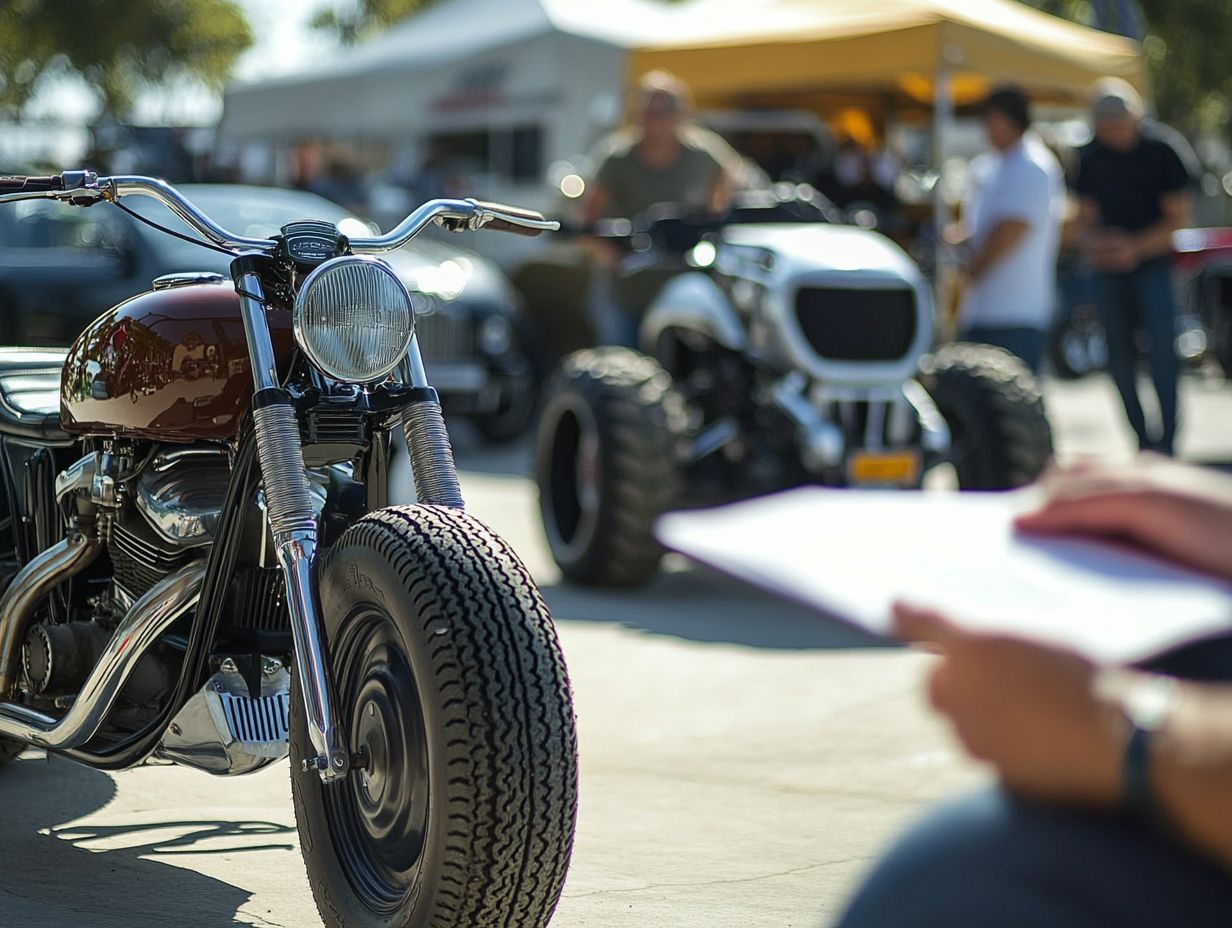
- Non-standard vehicles are those that do not fit into traditional categories and may require specialized insurance coverage.
- Factors such as modifications, usage, and value can impact the coverage and premiums for non-standard vehicles.
- When insuring a non-standard vehicle, options include liability, collision, and comprehensive coverage, which can vary in levels of protection and cost.
What are Non-Standard Vehicles?
Non-standard vehicles are those automobiles that might not meet the criteria for traditional car insurance. Understanding coverage for off-road vehicles can often stem from various factors related to the owner’s driving history and profile.
Typically, these vehicles are associated with high-risk drivers or individuals with less favorable credit histories, resulting in higher insurance premiums and specialized policies from certain providers.
Grasping the definition of a non-standard vehicle is essential to explore coverage for special interest vehicles and find the most suitable options available.
Defining Non-Standard Vehicles
Non-standard vehicles are typically classified as those that fail to meet the criteria for standard insurance coverage. This often occurs due to an unfavorable driving history or unique characteristics, which can lead to questions about coverage for event vehicles.
These vehicles often encompass older models that may lack modern safety features, making them less appealing to insurers. Certain types, such as customized cars or those used for high-risk activities, can easily find themselves in this category.
The vehicle’s history, including repeated traffic violations like speeding tickets or DUIs, complicates the matter further, making insurability a challenge.
As a result, non-standard vehicles often face higher premiums, which can create financial hurdles for their owners. By understanding these nuances, you can make more informed choices when navigating the complex insurance landscape.
Why Coverage for Non-Standard Vehicles is Different
Coverage for non-standard vehicles varies considerably from standard insurance. The difference arises from the heightened risks linked to insuring high-risk drivers and vehicles with less-than-ideal driving histories, making it important to explore understanding coverage for unconventional vehicles.
These factors play a crucial role in shaping both insurance rates and the available coverage options.
Factors that Affect Insurance Coverage
Several factors influence your insurance coverage for non-standard vehicles, including your history of traffic violations and any previous insurance claims you may have. It’s also important to understand coverage for vehicle modifications as it can affect your policy options.
The type and age of your vehicle also play crucial roles. Older or specialized models often come with unique risks that insurance companies carefully consider.
Regional regulations and the average accident rates in your area can significantly impact your premiums. Insurers will also note how frequently claims are filed, as a higher number of claims can suggest a higher risk profile.
All these elements work together to shape your insurance costs and options. It s essential for you to be mindful of your overall driving behavior and the choices you make regarding your vehicle.
Types of Coverage for Non-Standard Vehicles
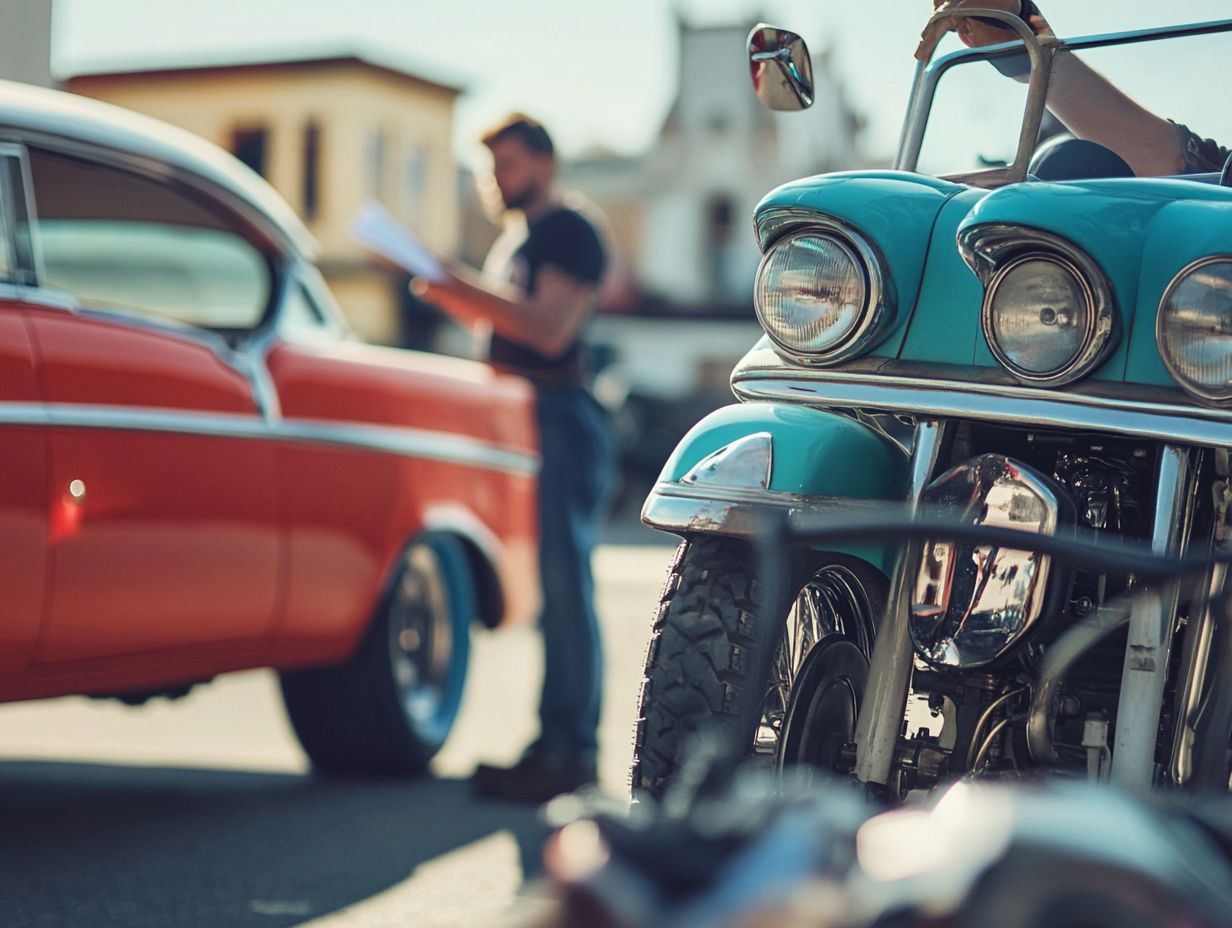
When insuring non-standard vehicles, you have access to a range of tailored coverage options, including understanding coverage for uninsured vehicles, designed to suit your unique needs.
- Liability coverage: Helps pay for damages you cause to others in an accident.
- Collision coverage: Pays for damages to your vehicle from a collision.
- Comprehensive coverage: Protects against non-collision-related damages, like theft or natural disasters.
Each option is crafted to provide you with the protection you require.
For more information or to get quotes for insuring your non-standard vehicle, feel free to reach out!
Liability Coverage
Liability coverage is essential for every driver, especially those with non-standard vehicles. It helps pay for damages you might cause to others in an accident.
This coverage is especially important for owners of unique or modified cars, who may face greater risks on the road. Unlike comprehensive or collision coverage, which protects your own vehicle, liability insurance focuses on the costs associated with harming others or their property.
For those with non-standard vehicles, understanding this distinction is crucial. Some insurers offer specialized policies designed to meet the unique needs and risks associated with such vehicles. Liability coverage not only protects your finances but also ensures you comply with legal requirements. It s an important part of responsible vehicle ownership!
Collision Coverage
Collision coverage provides you with financial protection for non-standard vehicles in case of an accident, no matter who is at fault. It covers the costs to repair your insured vehicle.
This insurance is particularly important if you own a vehicle that doesn t meet standard specifications, like modified cars or older models. These unique vehicles can create challenges during the claims process, as their value and repair needs often differ from conventional vehicles.
By securing collision coverage, you avoid significant out-of-pocket expenses after an accident. This safety net enables you to focus on restoring your vehicle to its original glory and alleviates financial stress! It highlights the need for tailored insurance options that fit your specific needs.
Comprehensive Coverage
Comprehensive coverage protects your unique vehicle from damages not caused by collisions, like theft, vandalism, or natural disasters.
This type of coverage is crucial for anyone who owns a distinctive, classic, or specialty vehicle. These often come with a higher risk and require more investment to protect. By choosing this policy, you ensure coverage against a variety of unexpected events, potentially saving yourself from costly repairs or replacements.
Along with theft and vandalism, comprehensive coverage shields you from natural events like floods or fallen trees. For owners of non-standard vehicles, this protection can prevent considerable financial loss and offer peace of mind while driving!
How to Obtain Coverage for Non-Standard Vehicles
Obtaining coverage for non-standard vehicles requires navigating a range of insurance providers. To make informed decisions, it’s crucial to understand coverage for specialty vehicles and carefully evaluate various insurance quotes to select the most suitable options for your unique situation.
Options for Insuring Non-Standard Vehicles
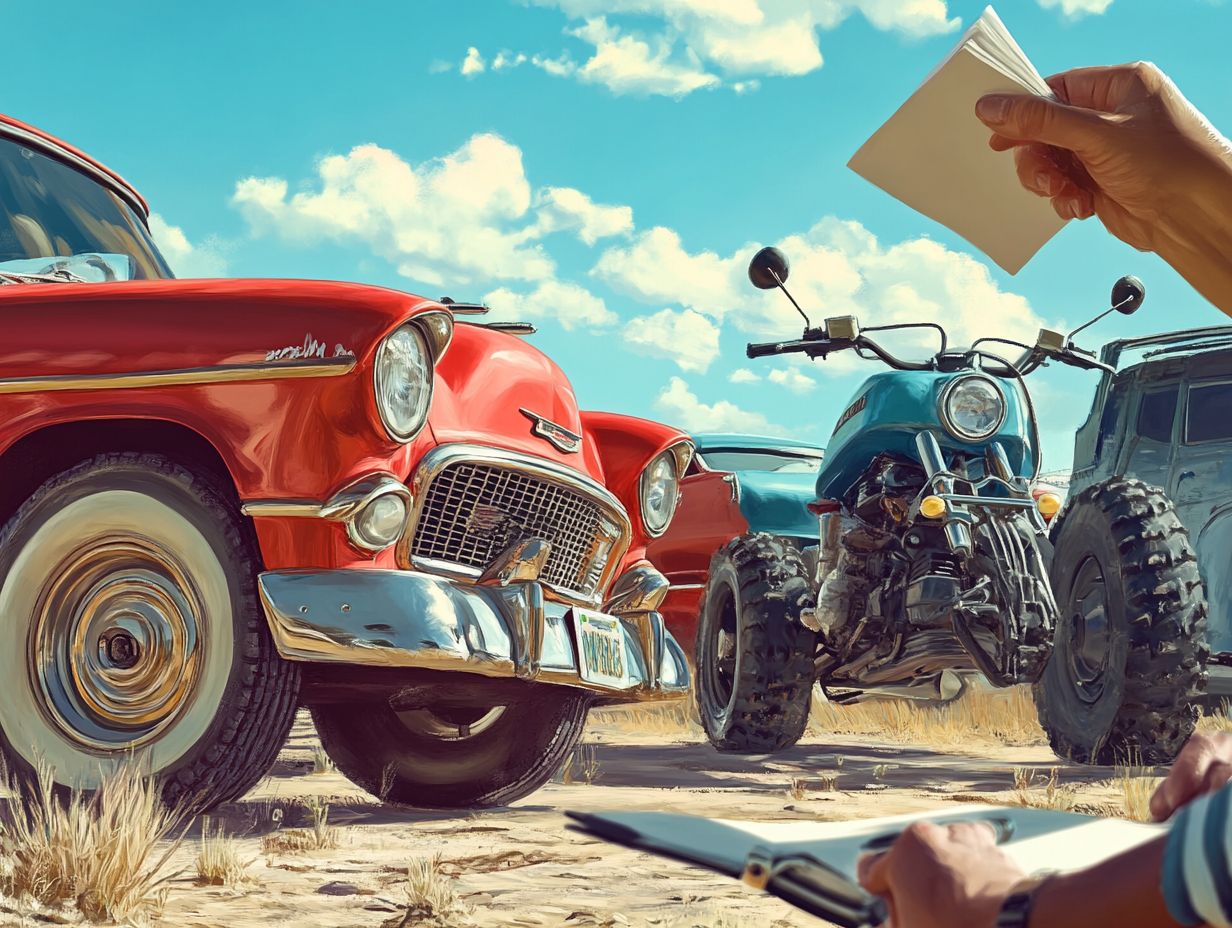
When it comes to insuring non-standard vehicles, a variety of options are available. Specialized insurance programs from certain providers cater specifically to high-risk drivers, ensuring your unique needs are met.
- These tailored programs often offer coverage designed for atypical vehicles like custom modifications or performance upgrades that standard policies might overlook.
- Insurance for classic cars, modified motorcycles, or specialty trailers can differ significantly from conventional vehicle insurance.
- Providers understand the complexities involved and offer benefits like agreed value coverage. This policy locks in your vehicle’s worth based on mutual agreement before any claims are made rather than market depreciation.
- By evaluating your individual risk factors, they create personalized plans that deliver robust protection without excessive premiums, allowing you peace of mind!
Tips for Finding the Right Coverage
Finding the right coverage for utility vehicles requires attention to several key factors. You’ll want to:
- Evaluate various coverage options.
- Compare insurance rates.
- Consider your unique insurance needs, tailored to your driving history.
Act now to secure the best coverage for your unique vehicle!
Factors to Consider When Choosing Coverage
When selecting insurance for specialty vehicles, consider your driving history, insurance costs, and available coverage options.
If you own a unique or modified car, it’s crucial to understand these factors. A clean driving record can lead to lower premiums, as insurers see you as a lower risk.
Insurance costs vary widely. Rare or high-performance cars may come with higher premiums due to expensive replacement parts and increased liability risks.
Carefully assess the coverage options available. You can choose from liability protection to comprehensive plans that cover theft and damage, ensuring you have tailored protection.
Frequently Asked Questions
What are specialty vehicles?
Specialty vehicles are those that don’t fit the standard categories like cars or trucks. This includes motorcycles, ATVs, RVs, and custom-made vehicles.
Do I need different insurance for my specialty vehicle?
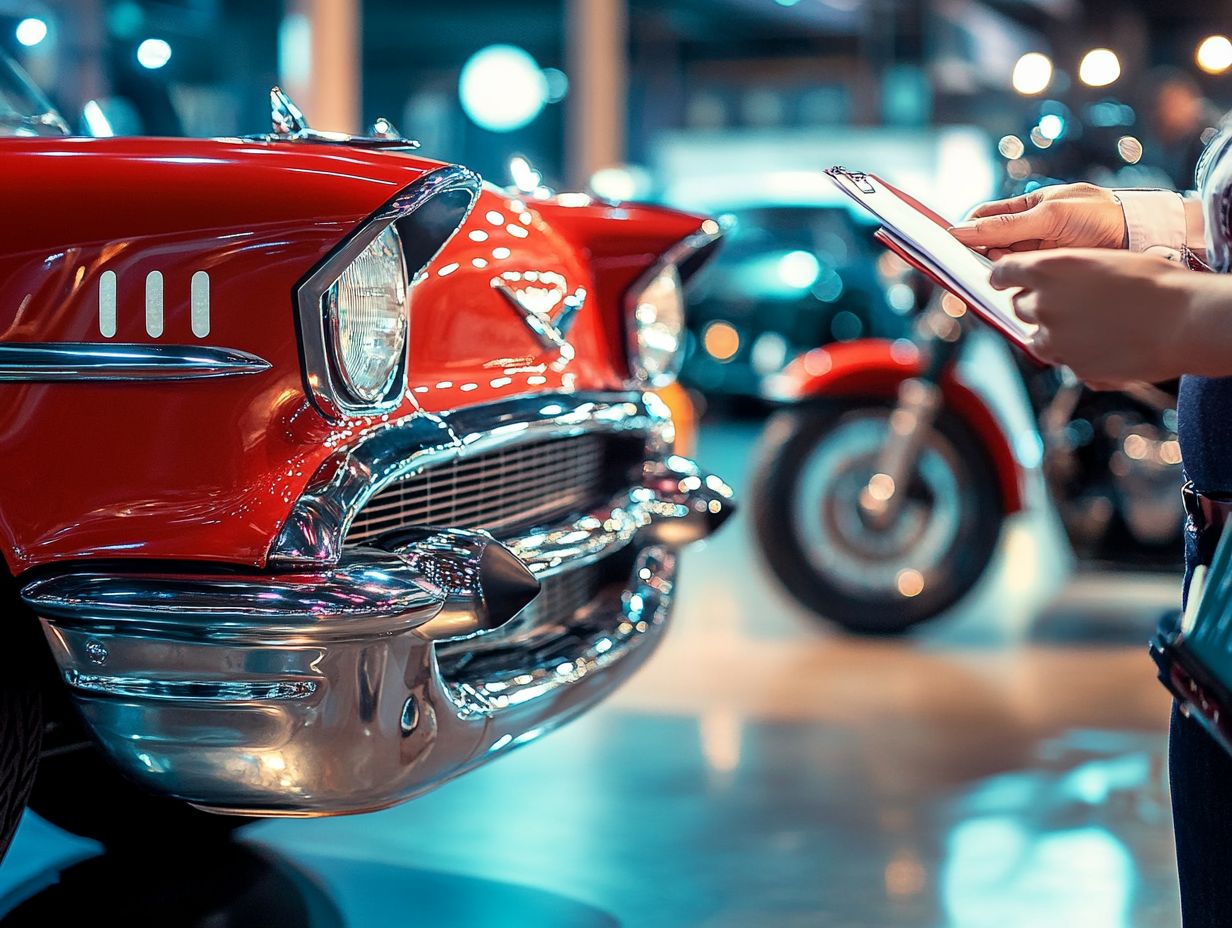
Yes, specialty vehicles have unique risks and often require specific insurance coverage. Ensure you have the right protection for your vehicle.
What types of coverage are available for specialty vehicles?
Coverage options vary by provider. Common types include collision, liability, and comprehensive coverage, with add-ons for specific risks like off-road usage for ATVs.
How is the cost of insurance for specialty vehicles determined?
The cost is based on factors like the vehicle type, its value, intended use, and your driving history. Specialty vehicles are often seen as higher risk, leading to higher premiums.
Can I insure a specialty vehicle under my current auto insurance policy?
Your current auto insurance may cover specialty vehicles, but verify with your provider. If not included, you may need a separate policy or additional coverage.
What if I don’t have proper coverage for my specialty vehicle?
Lack of appropriate coverage can leave you vulnerable in an accident or incident. This might lead to costly repairs and potential legal issues if you’re found liable, so ensure you have the right coverage to avoid these risks.



